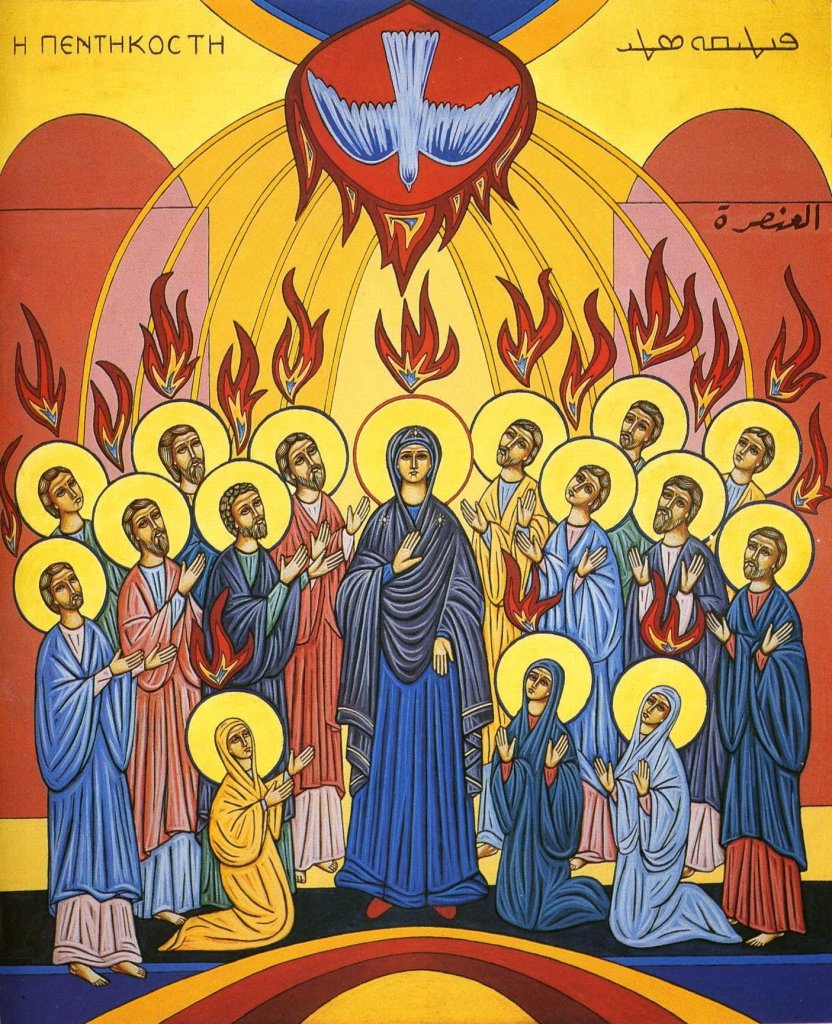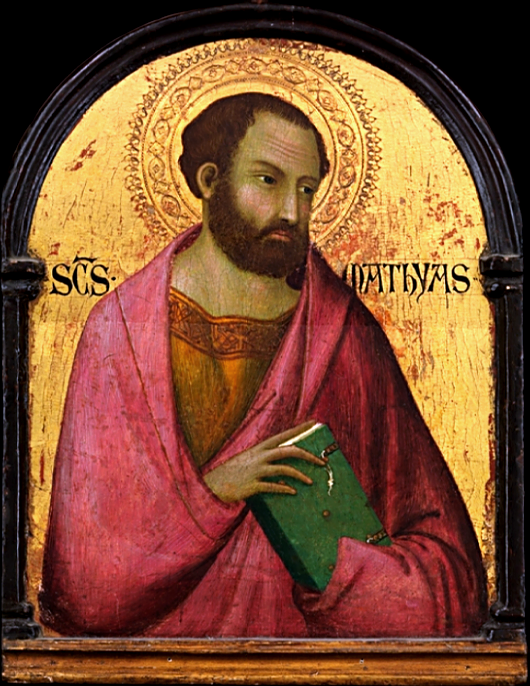Last year, 2020, marked the 850th anniversary of the martyrdom of St Thomas Becket at Canterbury. He was consecrated a bishop on this day in 1162. Becket commanded that the anniversary of his consecration should be kept on the Sunday after Pentecost, in honour of the Most Holy Trinity. The practice became widespread and in 1334, Pope John XXII made it an official feast day.
Last Sunday we celebrated Pentecost, the outpouring of the Holy Spirit upon the Church, a revelation of who God is, and how much God loves us, His people. This week we continue to meditate upon God’s love. Such love is awesome and mysterious: an ocean whose depths we can never plumb. This love forms a relationship so intimate that God is closer to us than we are to ourselves. Above all it is something to be experienced, rather than understood. Through this experience God transforms us, so that we may experience that love more fully, and finally enjoy it for eternity, in Heaven.
In our first reading from the book Deuteronomy, Moses calls Israel to reflect on the marvellous things God has done to bring His people out of Egypt. God is love, and His signs and wonders are a manifestation of that love. By accepting God’s love, Israel becomes a holy nation. To be holy is to let God’s love be at work in our lives, in our desires, our activities, and our relationships.
The second reading is taken from Paul’s Letter to the Romans, and addresses Christians, who have received the Holy Spirit in Baptism. The word ‘Abba’ means ‘Father’ in Aramaic. It is an intimate and affectionate word, and the first word of the Lord’s Prayer. This term is a sign of the close relationship between God the Father, and God the Son. It speaks of the closeness of the relationship which God is inviting us to share. By acknowledging God as Father, we are called to be dutiful sons and daughters. In the reading from Deuteronomy, God calls Israel to be obedient children. Jesus obeys the will of the Father, and likewise the Apostles are expected both to obey Jesus, and to teach those they baptize to observe what Jesus commands. Such obedience is not that of a slave, but of a beloved child, part of a family, someone in a loving relationship with an inheritance in Heaven. As Christians we are brothers and sisters in Christ, filled with the Spirit, and part of family which existed for two thousand years, across every people, and language. Our inheritance is that we can share in Christ’s glory in Heaven, and enjoy it for all eternity. Such is the mystery of God’s love for us.
Today’s Gospel is what is commonly called the Great Commission. It comes at the end of Matthew’s Gospel, just before the Ascension. Before Jesus ascends to the Father, He sends His disciples out with authority. They are sent to make disciples, to teach them about God, and to draw people into a relationship with the God who loves them. As a sign of this relationship the Apostles are to baptize people in the name of the Father, and of the Son, and of the Holy Spirit. From the very beginning the Christian Faith is a Trinitarian Faith. We believe in One God, who is Father, Son, and Holy Spirit. Three persons, bound together in love, who invite the world to be in a relationship with Them. Our eucharist this morning began, ‘Yn enw’r Tad, a’r Mab, a’r Ysbryd Glân, In the name of the Father, and of the Son, and of the Holy Spirit’, because this is the God whom we worship. We express our belief in the words that we use, and also in the postures we adopt. Our movements show in a physical way what we believe. As Christians, we are called to live out the faith of our baptism in our lives. God, who is love, has shown that love to the world through His Son, Jesus Christ, and in the sending of the Holy Spirit. To be a Christian is to have encountered that love, and been changed by it. We are changed in our baptism and born again to new life in Christ. We are also changed each time we receive Holy Communion. By God’s grace, Communion, whether physical or spiritual, transforms us. Through it we are united with Christ, so that we may become what He is and share in the love which is the life of God.
It is both a great gift and a profound mystery, to share in the Divine life of love, and to be transformed. God loves us so much that He shares His life with us, and encourages us to share it with others. God’s generosity is breathtaking, and that is the point. We proclaim and worship a generous, loving God, who invites us all to enter the mystery of His love, and to let ourselves be changed by it. As followers of Christ, we are called to bear our own cross, and to suffer, but we do so willingly. We know that whatever trials we face are as nothing compared with the joy and glory which await us. We support each other, as a family, united with a God who has suffered for us, and who makes us this promise:
“And behold, I am with you always, to the end of the age.” (Mt 28:20)
We are not alone. Christ is with us. He hears our prayers, and speaks to us in Scripture. He nourishes and transforms us with the Sacraments. These all unite us with God. Ans so we join with the angels and saints in singing the praises of God the Father, God the Son, and God the Holy Spirit. To whom be ascribed, as is most right and just, all might, majesty, glory, dominion, and power, now and forever. Amen.




